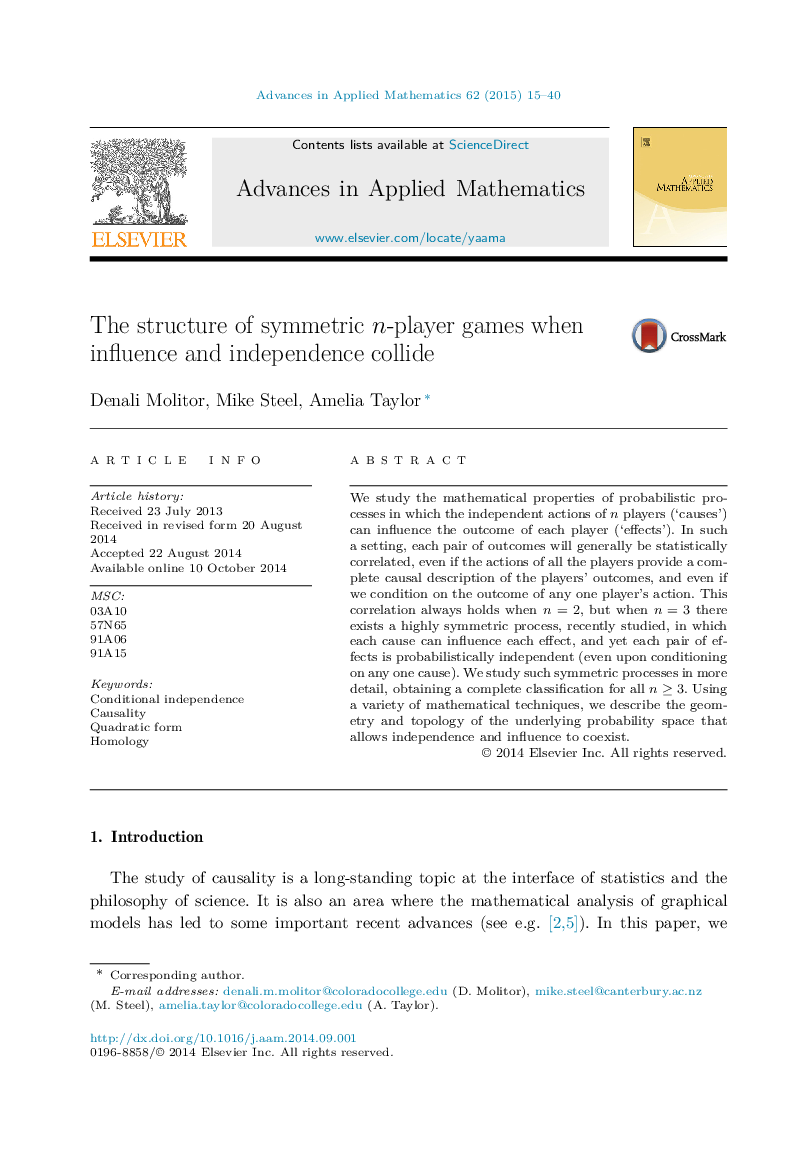| Article ID | Journal | Published Year | Pages | File Type |
|---|---|---|---|---|
| 4624666 | Advances in Applied Mathematics | 2015 | 26 Pages |
Abstract
We study the mathematical properties of probabilistic processes in which the independent actions of n players ('causes') can influence the outcome of each player ('effects'). In such a setting, each pair of outcomes will generally be statistically correlated, even if the actions of all the players provide a complete causal description of the players' outcomes, and even if we condition on the outcome of any one player's action. This correlation always holds when n=2, but when n=3 there exists a highly symmetric process, recently studied, in which each cause can influence each effect, and yet each pair of effects is probabilistically independent (even upon conditioning on any one cause). We study such symmetric processes in more detail, obtaining a complete classification for all nâ¥3. Using a variety of mathematical techniques, we describe the geometry and topology of the underlying probability space that allows independence and influence to coexist.
Related Topics
Physical Sciences and Engineering
Mathematics
Applied Mathematics
Authors
Denali Molitor, Mike Steel, Amelia Taylor,
